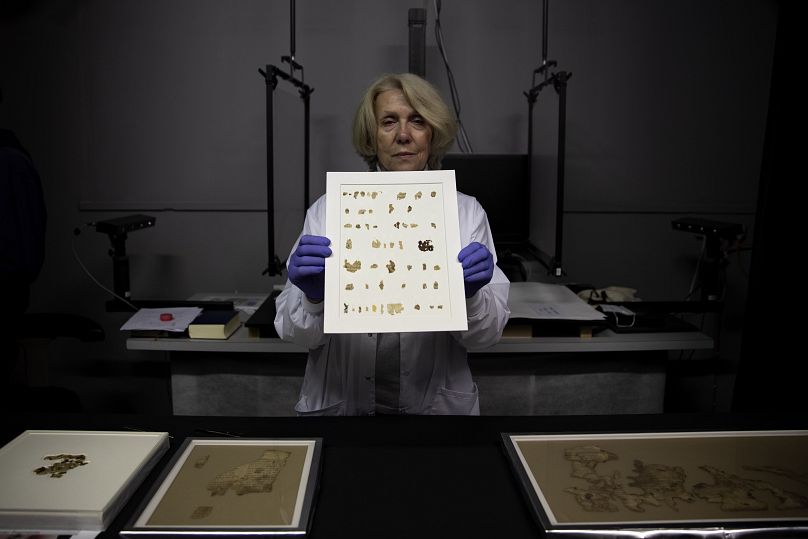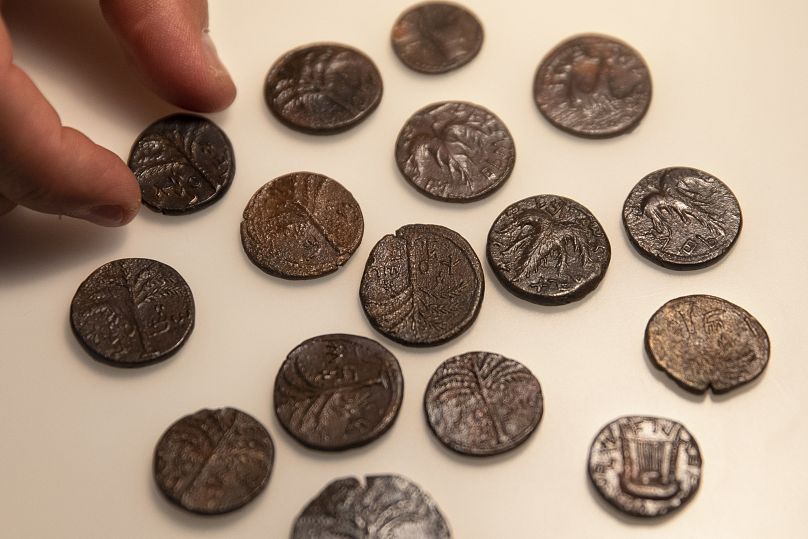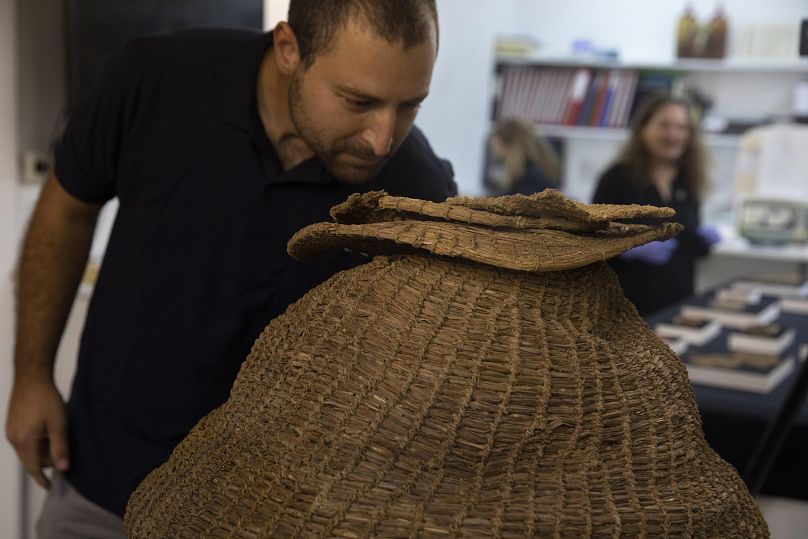The 2,000-year-old scroll is the first discovery of its kind since the unearthing of the Dead Sea Scrolls more than 70 years ago.
A 2,000-year-old biblical scroll has been unearthed in the Judean desert in Israel, the first discovery of its kind since the Dead Sea Scrolls were found more than 70 years ago.
 ADVERTISEMENT
ADVERTISEMENT
 ADVERTISEMENT
ADVERTISEMENT
The religious text, written in Greek, was found during excavations in a cliff-side cave in the Nahal Hever nature reserve, as part of a national operation to combat heritage looting.
The Israel Antiquities Authority (IAA) said the “historic” discovery has made it possible to reconstruct passages from the books of Zechariah and Nahum, from the book of the twelve minor prophets of the Bible.
"For the first time in about 60 years, archaeological excavations have uncovered pieces of a biblical scroll," the IAA said in a statement.
The excavation, in the West Bank part of the Judean Desert which has been occupied by Israel since 1967, required drones and mountain equipment such as ropes for abseiling.
In addition to the pieces of parchment, other rare finds were made; including items dating back to the Jewish revolt of Bar Kokhba against the Romans (132-136 AD), a 6,000-year-old mummified child's skeleton draped in cloth, and a 10,500-year-old basket, which the IAA estimates as “probably the oldest in the world”.
Since the discovery of the Dead Sea Scrolls in the 1940s in the caves of Qumran, antique looters have targeted the caves of the Judean desert.
Israel has mounted a campaign to “save these rare and important heritage items from the clutches of thieves” according to Israel Hasson, the director of the IAA.
The more than 900 Dead Sea Scrolls are considered one of the most important archaeological discoveries of all time as they include religious texts in Hebrew, Aramaic and Greek, as well as the oldest known version of the Old Testament.













